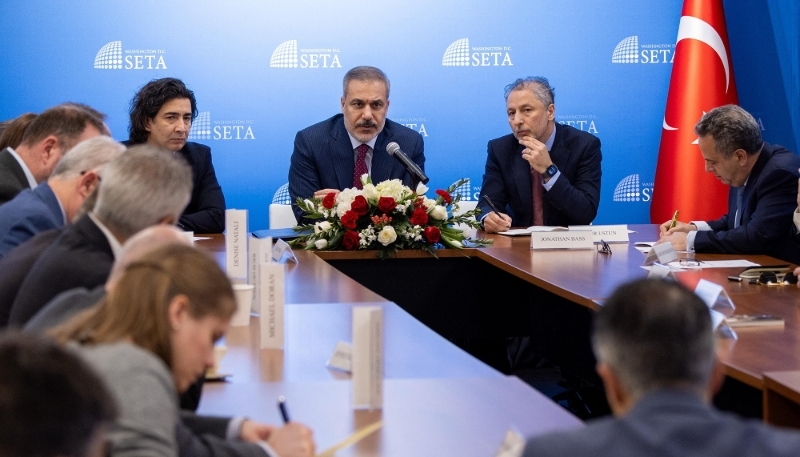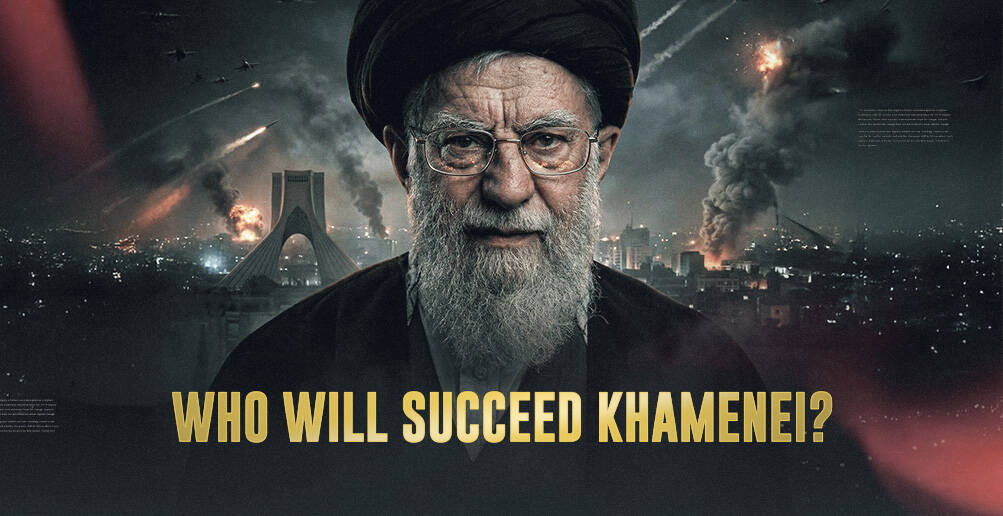Hakan Fidan: How Erdogan’s Man Is Redrawing Turkiye’s Map in Africa

Africa is set to become the stage for Erdogan’s geopolitical project, using Fidan’s tools.
In one of the quietest yet most effective shifts in Turkish foreign policy, Hakan Fidan, the head of Ankara’s diplomacy, is leading a strategic expansion of his country’s presence in Africa.
He is doing so with a carefully selected diplomatic team that includes former intelligence officers, seasoned diplomats, and political and technical figures closely linked to President Recep Tayyip Erdogan.
From Ankara to Mogadishu and from Dakar to Niamey, Foreign Minister Fidan is executing a precise plan to manage the continent’s complex files, aiming to strengthen Turkiye’s influence across political, economic, and security domains.
Active Diplomacy
Fidan’s efforts are bolstered by the declining Western presence, especially France, which has been expelled from many African countries, and by intensifying Gulf competition in traditionally dominant regions.
On May 16, 2025, Africa Intelligence reported that Fidan had formed a tightly focused diplomatic network made up of both new faces and experienced figures, all working to entrench Turkiye’s presence across the continent.
Fidan, who previously headed Turkiye’s intelligence agency from 2010 to 2023, was known as “Erdogan’s shadow” and the “architect of secret files” before being appointed foreign minister in June 2023, succeeding Mevlut Cavusoglu.
Despite his lack of direct experience in Africa, according to the French magazine, Fidan has reorganized the ministry to prioritize Africa as a key strategic focus for the Turkish state.
Since taking office, he has gone beyond administrative leadership to become the main face of Turkish diplomacy in Africa.
He has personally led negotiations, signed security and trade agreements, and reshaped the ministry’s structure to reflect Turkiye’s growing engagement with the continent.
This was clearly visible at the Antalya Diplomacy Forum held on April 12, 2025, where the picturesque coastal city hosted over 40 African delegations—an event that underscored the high expectations Ankara places on its partnerships with Africa.
Fidan and his team led the forum, placing Africa firmly back on the foreign policy agenda, as a priority equal to Syria or Europe.

The Leadership Team
To implement this multi-pronged policy, Hakan Fidan has reorganized the structure of the Foreign Ministry, relying on a seasoned team. One of the most prominent figures is Burhanettin Duran, the deputy foreign minister assigned exclusively to African affairs.
Duran, a former university professor and a thinker aligned with the conservative Islamist current, previously served as director of the SETA Foundation, a think tank affiliated with the Justice and Development Party (AKP). In 2024, he was appointed deputy minister of foreign affairs with a sole focus on the African portfolio.
Although new to the African arena, Duran quickly made his mark, taking charge of mediation efforts between Ethiopia and Somalia over the Somaliland dispute.
In April 2025, he traveled to Abu Dhabi to discuss the Horn of Africa’s security file with UAE Minister of State Sheikh Shakhboot bin Nahyan.
Duran’s selection is not only due to his proximity to the ruling party but also reflects Fidan’s desire to bring in intellectual figures capable of navigating political negotiations and managing diplomatically complex issues with ideological dimensions.
Another key figure is Ali Onaner, Director of North and East African Affairs. A seasoned diplomat fluent in French, Onaner previously served as Turkiye’s ambassador to both France and Tunisia.
In 2024, he was appointed to head the North and East Africa desk—a strategic region for Ankara due to the concentration of Turkish investments and military presence, especially in Somalia and Sudan.
Onaner has an elite educational background. He graduated from the French lycee in Ankara and later studied at France’s prestigious Ecole Nationale d’Administration (ENA), where he was a classmate of current French President Emmanuel Macron.
He is known for his ability to navigate sensitive negotiations and played a central role in brokering the “Ankara Declaration” that helped defuse tensions between Somalia and Ethiopia in December 2024.
Onaner also oversees major infrastructure projects led by Turkish companies across Africa, including Yapi Merkezi’s railway ventures in Tanzania and Uganda, while also monitoring the legal challenges the company faces in Ethiopia.

Team Members
The rest of the diplomatic team includes Volkan Isikci, Director for Southern Africa and Multilateral Platforms.
Isikci, a former ambassador to Cameroon, is now responsible for the countries of Southern Africa and regional African organizations within a new structure launched by Fidan to support regional specialization.
He oversees relations with the Southern African Development Community (SADC) and manages emerging commercial and military files, especially in Zambia, South Africa, and Mozambique.
Then there is Sebnem Cenk, Director for West and Central Africa. She is a French-speaking diplomat who previously lived in Equatorial Guinea.
Appointed to lead the West and Central Africa portfolio, she serves as the main liaison between Ankara and its embassies across the Sahel region.
She closely monitors political and security developments in Niger, Mali, and Burkina Faso, supervising the reshaping of Turkish influence amid the withdrawal of French forces from the region.
Also part of the team is Nur Sagman, Turkiye’s ambassador to Senegal and the executive in charge of relations in West Africa, considered one of Fidan’s key field operatives.
Previously, she was the head of the Africa desk at the Presidency. Now based in Dakar, she manages files related to Senegal and Cape Verde, working to strengthen the Turkish alliance with Senegalese President Bassirou Diomaye Faye.
Sagman established an economic base for Ankara in West Africa by boosting the role of the Turkish construction company Summa. She also oversees the sales program of TB2 drones and coordinates cultural and commercial projects alongside security affairs.
Finally, Alp Ay serves as the special envoy for negotiations between Mogadishu and Somaliland. A former ambassador to Angola, he was appointed to this sensitive post to lead talks between the Somali government and Somaliland authorities.
Alp Ay handles the file at a critical time, amid rising regional tensions and potential U.S. intervention favoring Somaliland’s independence, supported by the administration of President Donald Trump.
He receives instructions directly from Fidan without intermediaries and is considered his special envoy in the Horn of Africa.

‘Security and Commercial Flavor’
The team’s responsibilities are not limited to political issues; they also include arms trade, contracting, and infrastructure.
Alongside cooperation with the Ministry of Defense, Fidan expanded the Foreign Ministry’s powers to promote arms exports in collaboration with Turkish Defense Minister Yasar Guler, who frequently visits Africa to sign military agreements.
He also strengthened his cooperation with Haluk Gorgun, head of the Defense Industries Authority, who is responsible for marketing Turkish weapons internationally.
At times, the three undertake joint diplomatic and security tours across Africa, as seen in Niger in mid-July 2024.
To ensure continued political loyalty to Turkish influence, Fidan uses communication channels through his team with the ruling parties in African countries.
In 2024, Erdogan sent his deputy in the party, Zafer Sirakaya, to sign agreements with Ethiopia’s Prosperity Party, Somalia’s National Congress Party, Djibouti’s Prosperity Party, and South Africa’s African National Congress.
One of the prominent files Fidan and his team are currently working on is preparing Ankara to host a new Turkiye-Africa summit in Libya in 2026, betting on the Foreign Economic Relations Board (DEIK) and the MUSIAD Association to strengthen commercial influence.
Africa Intelligence commented on this Turkish strategy, saying that what Hakan Fidan is doing is not just a new foreign policy but a complete redesign of Ankara’s role in Africa.
Every figure in his team has been carefully chosen, and every task has been tightly managed. As Turkiye enters a new decade of global ambition, Africa will not just be an economic partner for Ankara but a backyard for Erdogan’s geopolitical project—implemented by Fidan’s tools and signed with intelligence.
Sources
- Türkiye doing everything it can to put end to conflicts in Africa: Foreign minister
- Turkish Foreign Minister Fidan builds ambitious Africa team in Ankara
- Turkish foreign minister meets with South African counterpart in Johannesburg
- Peace not sustainable without economic progress, prosperity: Fidan at G20
- Hakan Fidan: ‘In Africa, Turkiye offers its counterterrorism expertise to those who seek it’
- The Antalya Diplomatic Forum is a Turkish Initiative to Promote Dialogue and Resolve Thorny Issues [Arabic]











